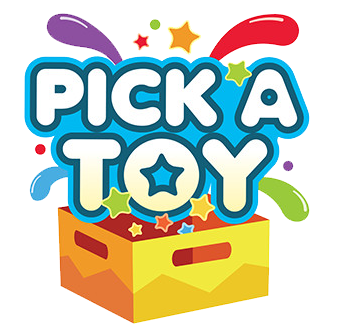Title: The Role of Pretend Play in Child Development
Introduction
Children have a remarkable ability to immerse themselves in imaginary worlds, whether they're playing house, creating superhero adventures, or running a pretend restaurant. This magical realm of pretend play, often referred to as imaginative or dramatic play, isn't just about having fun; it plays a significant role in a child's development. In this blog, we'll explore the fascinating world of pretend play and how it contributes to various aspects of child development.
What Is Pretend Play?
Pretend play is a form of play where children use their imaginations to create scenarios, act out roles, and engage in make-believe situations. It involves storytelling, role-playing, and using objects or props to represent different aspects of the imaginary world. Common examples include playing house, doctor, teacher, or pretending to be animals or characters from books or movies.
The Benefits of Pretend Play
Pretend play is more than just an enjoyable pastime. It plays a pivotal role in child development, influencing the following areas:
1. Cognitive Development:
Problem-Solving Skills: Pretend play often involves creating scenarios with challenges and conflicts that children need to resolve, stimulating problem-solving skills and critical thinking.
Imagination and Creativity: Pretend play encourages children to think creatively and come up with novel ideas, fostering their imagination.
Language Development: Role-playing and storytelling enhance language skills as children use words to describe their actions and communicate with others during play.
2. Social and Emotional Development:
Empathy: Pretend play allows children to step into different roles and understand the perspectives and feelings of others, promoting empathy and emotional intelligence.
Cooperation and Collaboration: Playing with others in imaginary scenarios teaches children to cooperate, negotiate, and work as a team.
Emotional Expression: Pretend play provides a safe space for children to express and process their emotions, helping them understand and manage their feelings.
3. Physical Development:
Fine and Gross Motor Skills: Acting out various roles and scenarios often involves physical movements and actions, helping develop both fine and gross motor skills.
Spatial Awareness: Children learn to navigate and interact with imaginary spaces, enhancing their spatial awareness and understanding of the physical world.
4. Self-Regulation:
Control and Self-Discipline: Pretend play allows children to practice self-regulation as they take on different roles and adhere to imaginary rules within the play scenario.
Delaying Gratification: Children learn to wait for their turn, follow the storyline, and accept delayed gratification in pretend play settings.
5. Cultural Awareness:
Exploring Roles: Pretend play often involves taking on different roles, including those from diverse backgrounds or cultures, fostering cultural awareness and inclusivity.
6. Confidence and Self-Esteem:
Achievement: Successfully navigating the complexities of pretend play scenarios boosts a child's sense of accomplishment and self-esteem.
Risk-Taking: Children often take on new and daring roles in imaginary play, encouraging them to step out of their comfort zones and build confidence.
Encouraging Pretend Play
To nurture pretend play in children:
Provide Open-Ended Toys: Offer toys and props that encourage imaginative play, such as dress-up clothes, dolls, action figures, and building blocks.
Join In: Participate in pretend play with your child to model creativity, cooperation, and communication skills.
Create a Play-Friendly Environment: Dedicate a space in your home for imaginative play, stocked with props, costumes, and storytelling materials.
Limit Screen Time: Limit screen time to allow more opportunities for active, imaginative play.
Encourage Storytelling: Encourage your child to tell stories, whether through drawing, writing, or verbal storytelling.
Conclusion
Pretend play is a powerful and natural way for children to explore the world, develop crucial skills, and express themselves. As caregivers and parents, we can support and encourage this form of play to facilitate cognitive, social, emotional, and physical growth. So, embrace the magic of imaginative play, and watch your child's creativity and development flourish in the enchanting world of make-believe.
